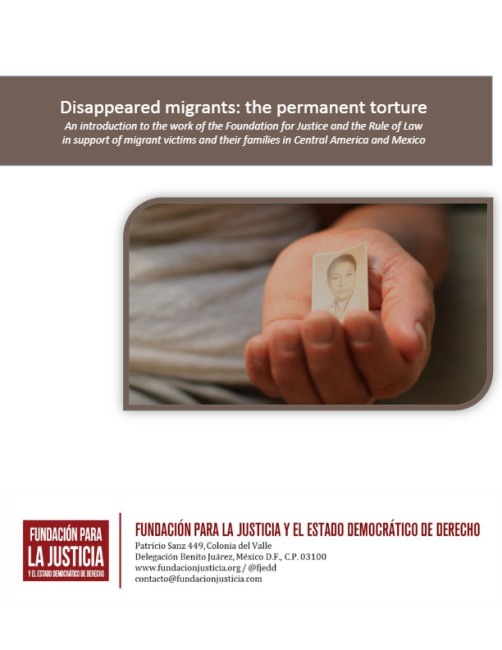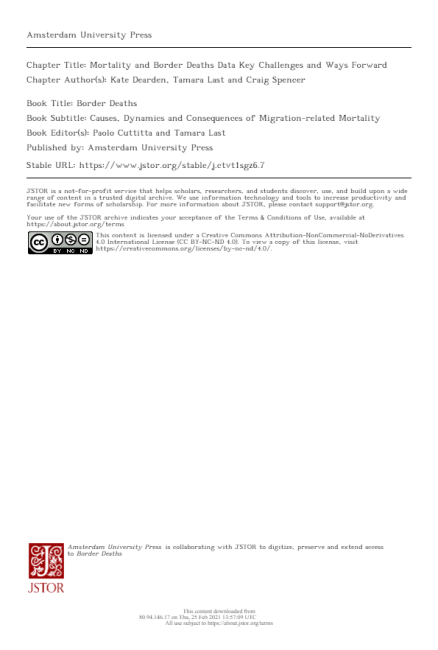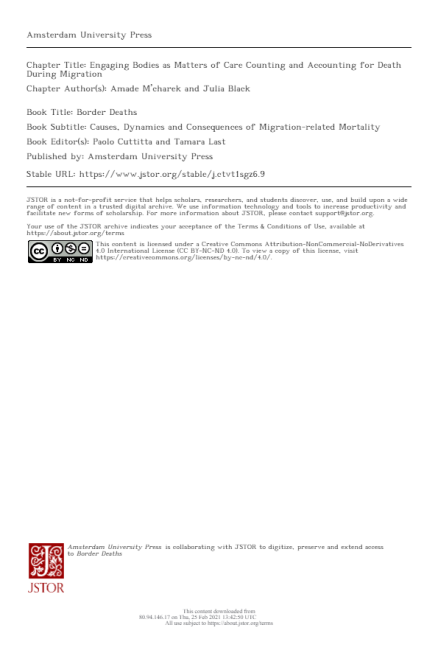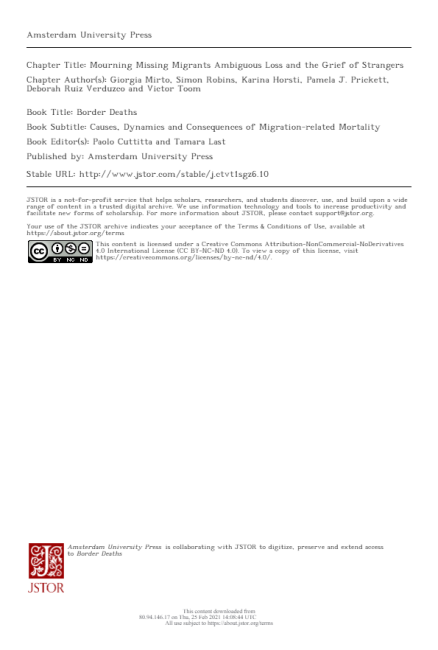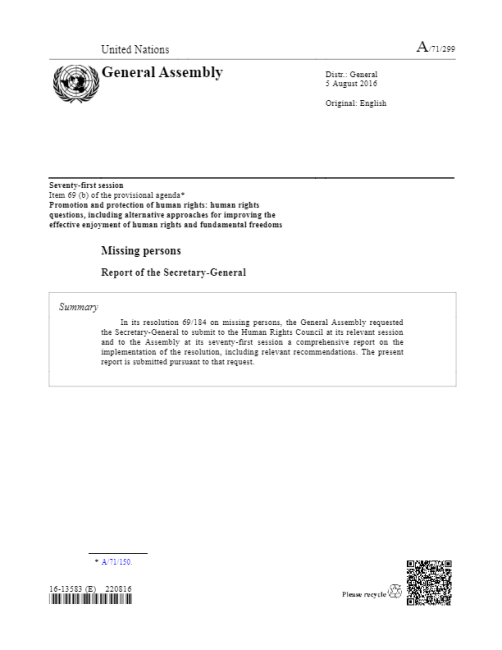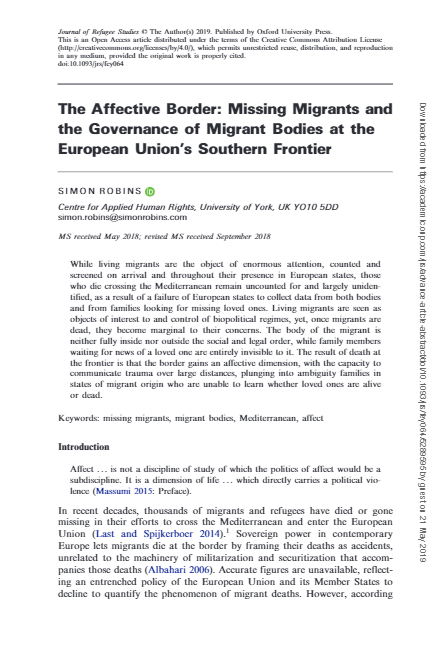
The Affective Border: Missing Migrants and the Governance of Migrant Bodies at the European Union's Southern Frontier
While living migrants are the object of enormous attention, counted and screened on arrival and throughout their presence in European states, those who die crossing the Mediterranean remain uncounted and largely unidentified, as a result of a failure of European states to collect data from both bodies and from families looking for missing loved ones. Living migrants are seen as objects of interest to and control of biopolitical regimes, yet, once migrants are dead, they become marginal to their concerns. The body of the migrant is neither fully inside nor outside the social and legal order, while family members waiting for news of a loved one are entirely invisible to it. The result of death at the frontier is that the border gains an affective dimension, with the capacity to communicate trauma over large distances, plunging into ambiguity families in states of migrant origin who are unable to learn if loved ones are alive or dead.



